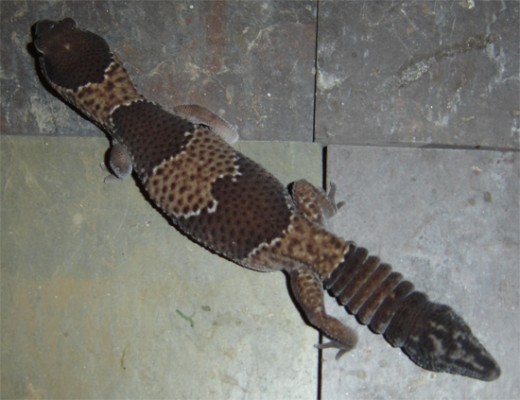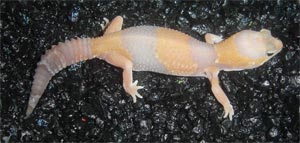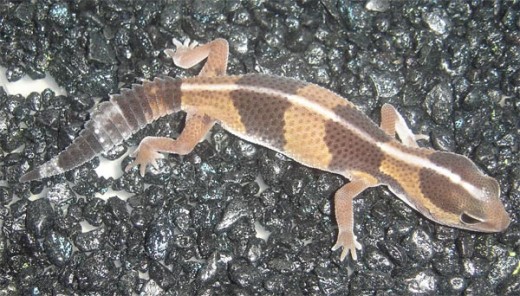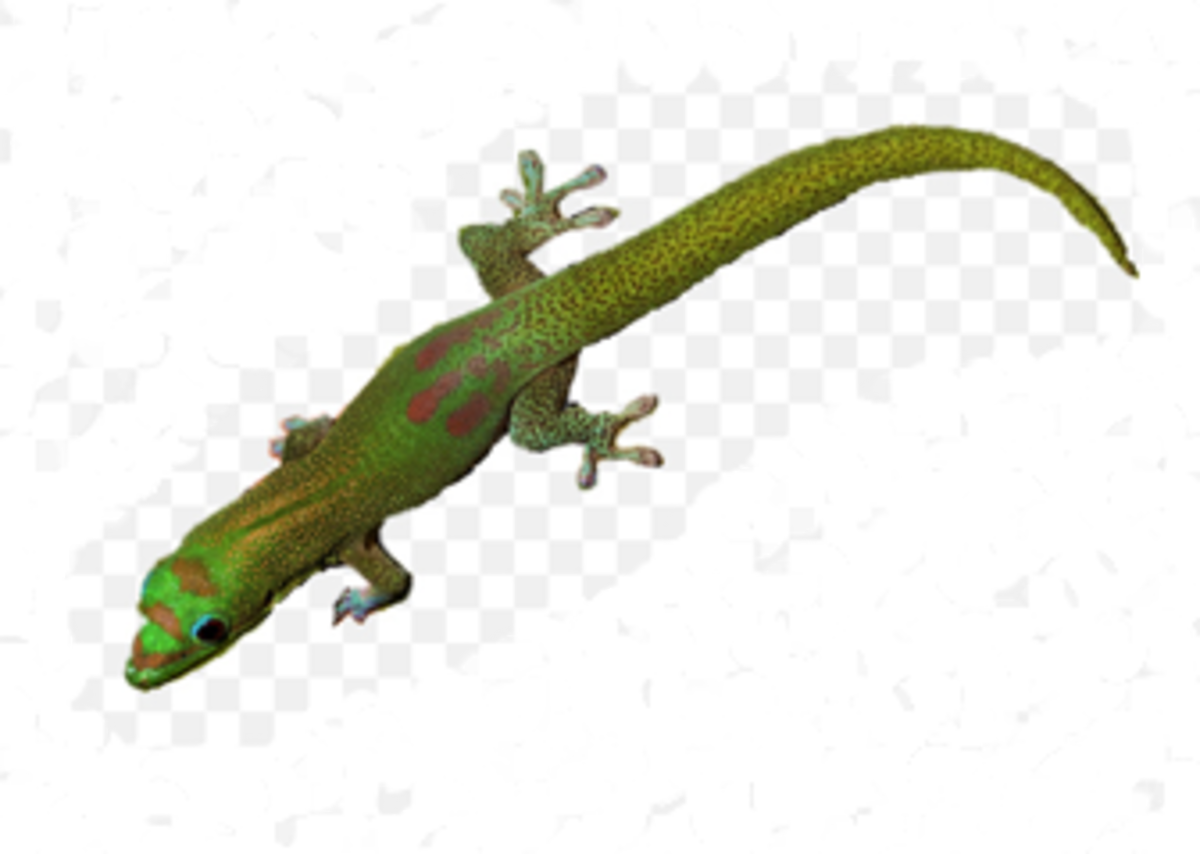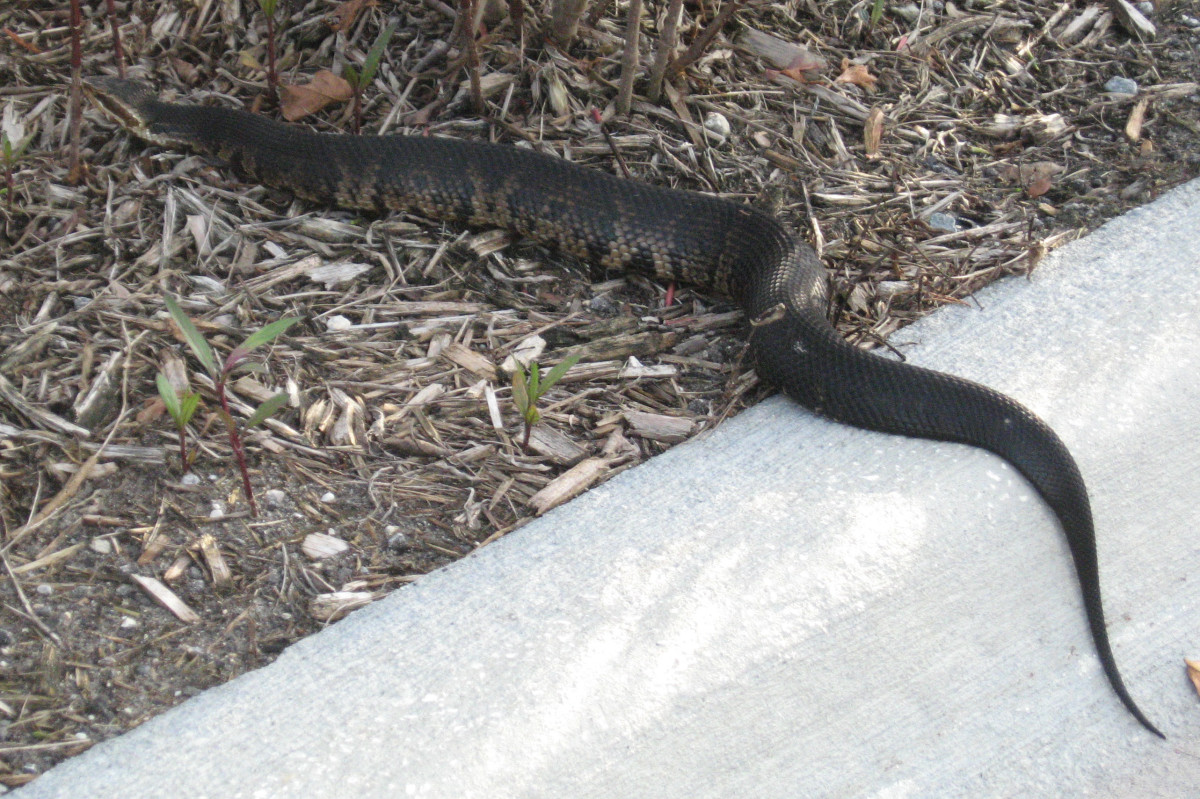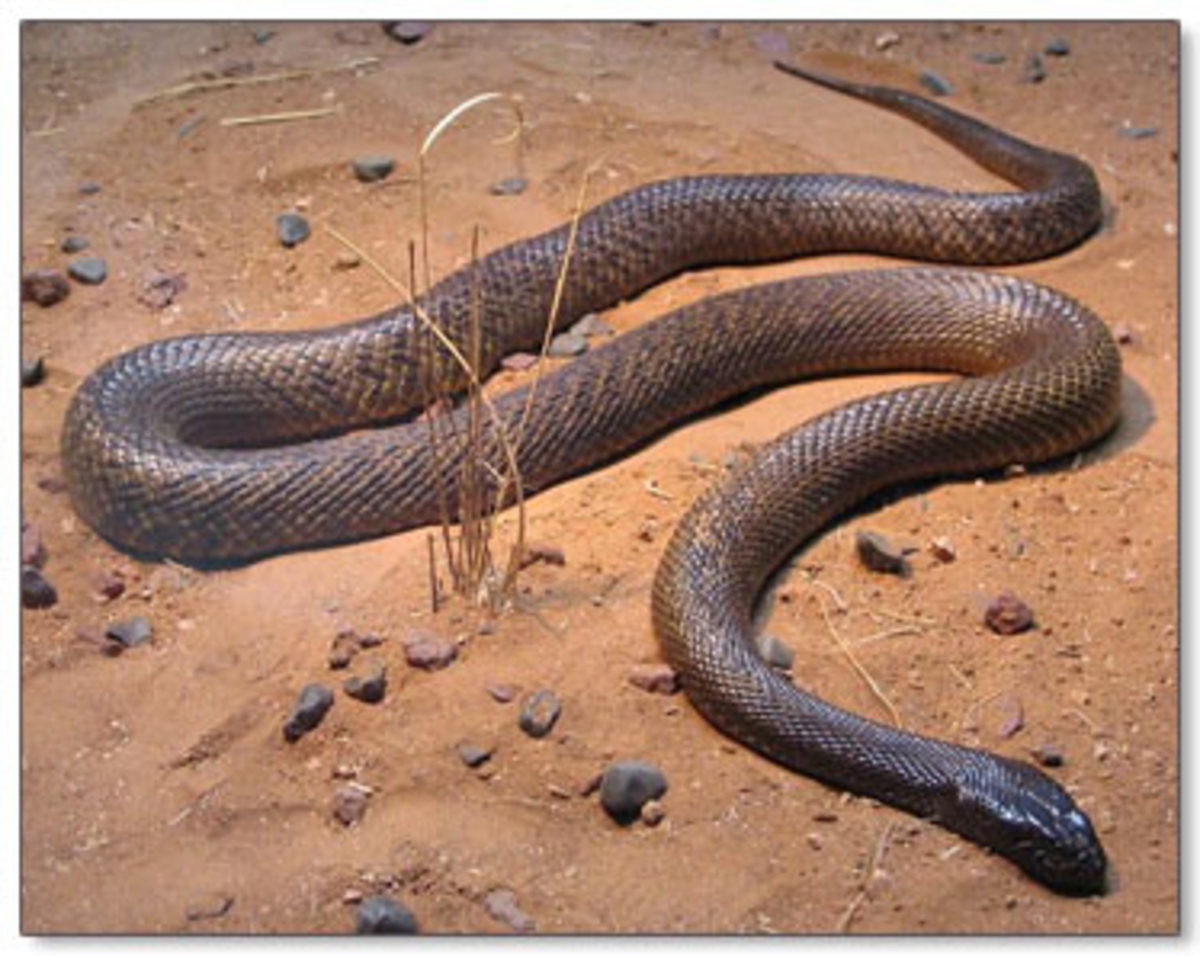African Fat Tail Gecko
AFT Morphs
Click thumbnail to view full-size


Hemitheconyx caudinctus
African fat tail geckos originate in West Africa. They live in dry, arid regions of Senegal and Cameroon.
Being nocturnal reptiles, AFT's spend a lot of their time during the day in dark, humid places. AFT's are terrestrial geckos that find crevices under and between rocks to hide. Although, they can climb a little, they are very clumsy at it.
African fat tail geckos are similar to the leopard gecko except for a few differences. AFTs are stockier, have slightly smaller feet, and bulkier heads. They, also, require more humidity than their leopard gecko cousins.
AFT's as Pets
This particular species is very docile, even more calm than leopard geckos. They rarely bite or show any aggressive nature. Although, they may hiss when they are spooked, African fat tails rarely bite.
Although they are very docile and withstand handling, you must be careful of their tails. Never grab an African fat tail by the tail because when they are frightened, they will drop their tails. Their tails do grow back, they do not grow back nearly as pretty.
Be weary when handling baby and juvenile geckos, they can be spooked easier than an adult and are more willing to drop their tails. Never allow young children to play with reptiles unsupervised.
African Fat Tail Lifespan
African fat tails can live an average life of 15 to 20 years with the proper care and husbandry. The earlier years of an AFT's life are the most important because without the proper care, young geckos can suffer health concerns later in life. Proper heating, supplements, and diet, must be provided for a gecko to have a long and healthy life.
AFT Size
AFT's grow anywhere from 6 to 10 inches on average.
Females tend to be slightly smaller than males at an average length of 6 to 8 inches, where males tend to average 8 to 10 inches.
African Fat Tail Shedding
AFT Enclosure
A 10 gallon aquarium is the minimum size for one African fat tail, whereas a 20-gallon long aquarium is more sizeable for one.
NEVER house more than one male together because they are territorial and will fight, to which one or more of the geckos will end up seriously hurt or killed.
Unlike males, you can house more than one female in the same enclosure, and with adequate housing, several females can live with one male for life, but this is not recommended because this can cause undo stress and bullying amongst the geckos.
African fat tail Set Up
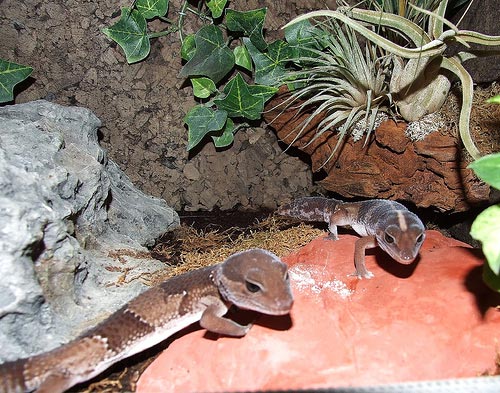
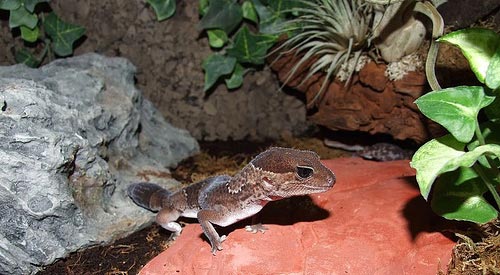
Filling the Enclosure
Substrate:
African fat tail geckos should be housed on solid surfaces such as paper towels, tile, or reptile carpet. You should not house any reptile on loose substrates such as playsand, calci-sand, wood shavings, etc. Loose substrates can raise the risk of impaction.
Décor:
Because African fat tails are nocturnal, you will need to make sure to include shelters and hides in the enclosure. Put at least two shelters in the cage- one on the warm side and one on the cool side.
Because AFTs require more humidity, you will need to add a humid hide in the enclosure. You can make a humid hide by taking a tupperware, cutting an access hole in it, and filling it with moist moss, vermiculite, or perlite. You can even put damp paper towels in it as well. Make sure to always keep it damp.
Reptile hammocks can, also, be added, allowing more room to roam.
Make sure to have plenty of room so the gecko can maneuver around the terrarium with ease; without adequate room to walk comfortably can cause stress on the gecko.
Lighting
Since African fat tail geckos are nocturnal, they do not require any UV lighting, and it is really up to you as to whether or not you want to use a regular light.
Using a day light, creates a day and night scenario for the gecko, but is not necessary. Having a light will not increase the enclosure temperatures too much; it may affect the air temperatures, but not the substrate temps that the gecko will be getting the most of.
Heating
The proper daytime temperatures should range from 82 to 88F, and the proper nighttime temperatures should range from 75 to 82F.
The best way to provide an AFT the proper heat is by using an under tank heater, since they acquire most of their heat through their bellies. Make sure to follow the directions on the package, because if not followed properly, they can cause stress cracks to the aquarium.
When using under tank heaters, I recommend not attaching them to the bottom of the enclosure, as it makes cleaning easier not having to worry about it.
During the cooler months, in the wild African fat tail will adjust to the cooling temperatures and limited food by going into a hibernation, or brumation, state, in which they eat less and become more lethargic. If the brumation period is not done correctly, it can be detrimental to your gecko, so it is NOT recommended that you attempt to lower the temperatures.
DO NOT use heat rocks as exposure will burn your gecko.
Humidity
African fat tails need a slightly higher humidity than that of a leopard gecko. In order to achieve this do not mist the cage, as misting can make the humidity level too high. High humidity levels can cause mold formation and health concerns such as upper respiratory infection in the gecko.
To achieve a good humidity level, provide a humid hide in the enclosure, making sure to keep it moist as all times. The AFT will go to the humid hide when he feels he needs to. Do not force an African fat tail gecko to stay in his humid hide.
Remember that too low and too high humidity can be detrimental, but as long as you provide a humid hide, your AFT will be able to get the proper humidity that he needs.
African Fat Tail Diet
African fat tail geckos are insectivores, meaning they eat insects. The diet of an African fat tail gecko can be based mainly on crickets.
Remember that any feeder insecet needs to be size appropriate; insects must be at least half the width of the gecko's head and no longer than the length of the gecko's head.
Do not get insects from your backyard because insects travel and can carry pesticides and chemicals used by either you or your neighbors, which can be detrimental to the gecko's health, even killing the gecko.
Gut-load any insect that you decide to use to feed your gecko. This gives the insect more nutrition that can be passed on to your gecko. Even though you gut-load, you still have to dust the insects with calcium and/or a multivitamin.
Water should be provided at all times. When keeping a baby African fat tail gecko, do make sure that the bowl is not so large that the baby can drown.

